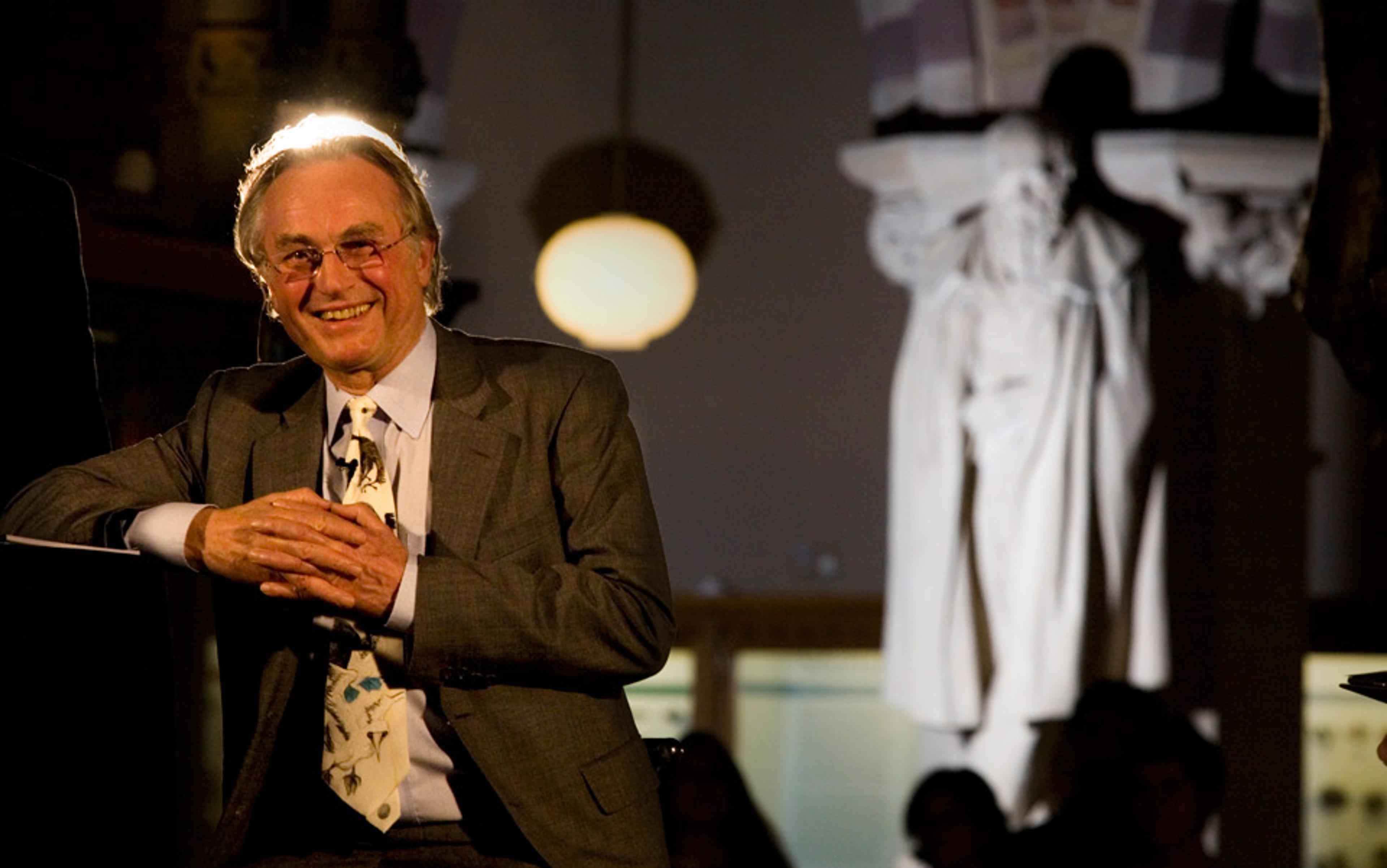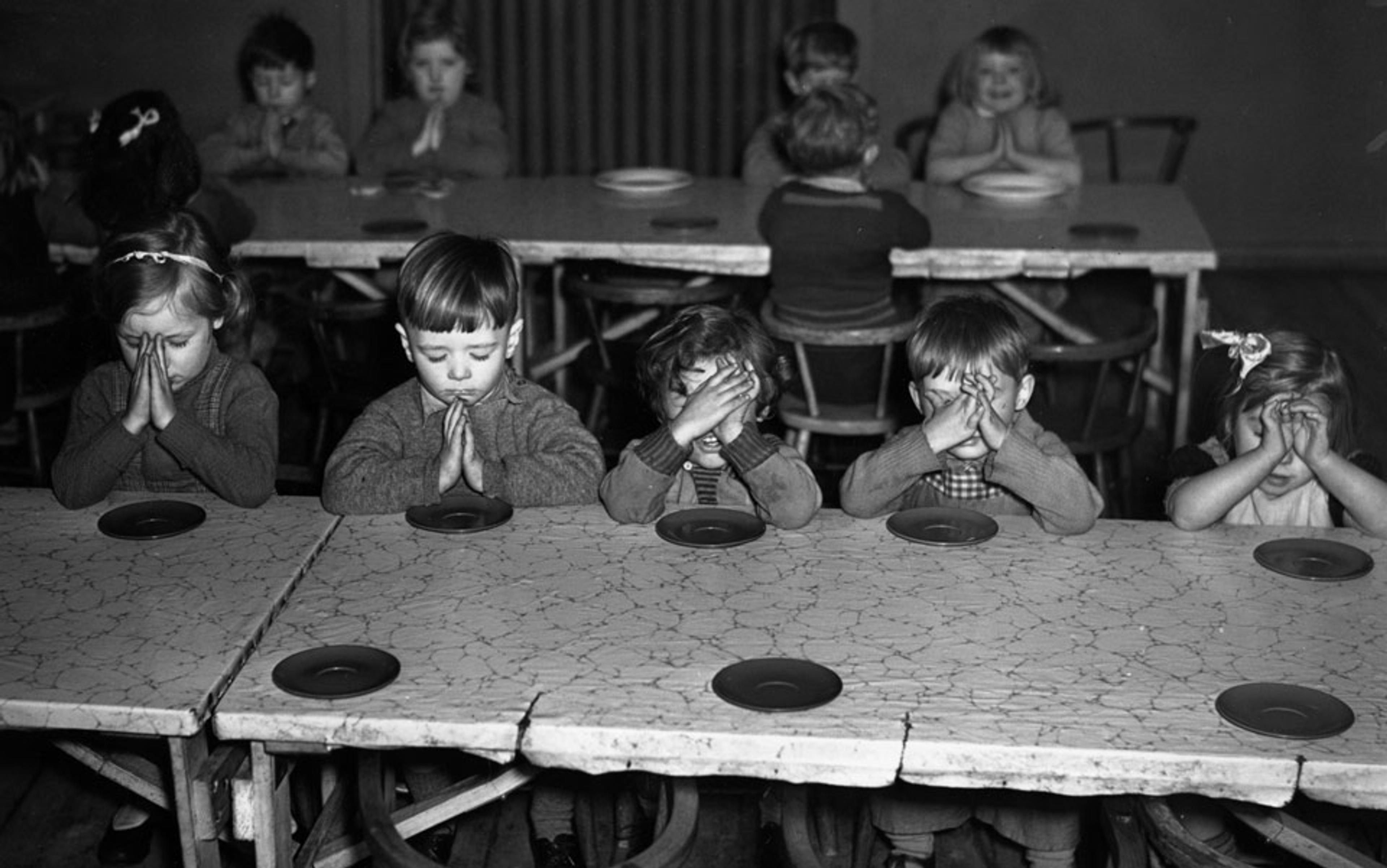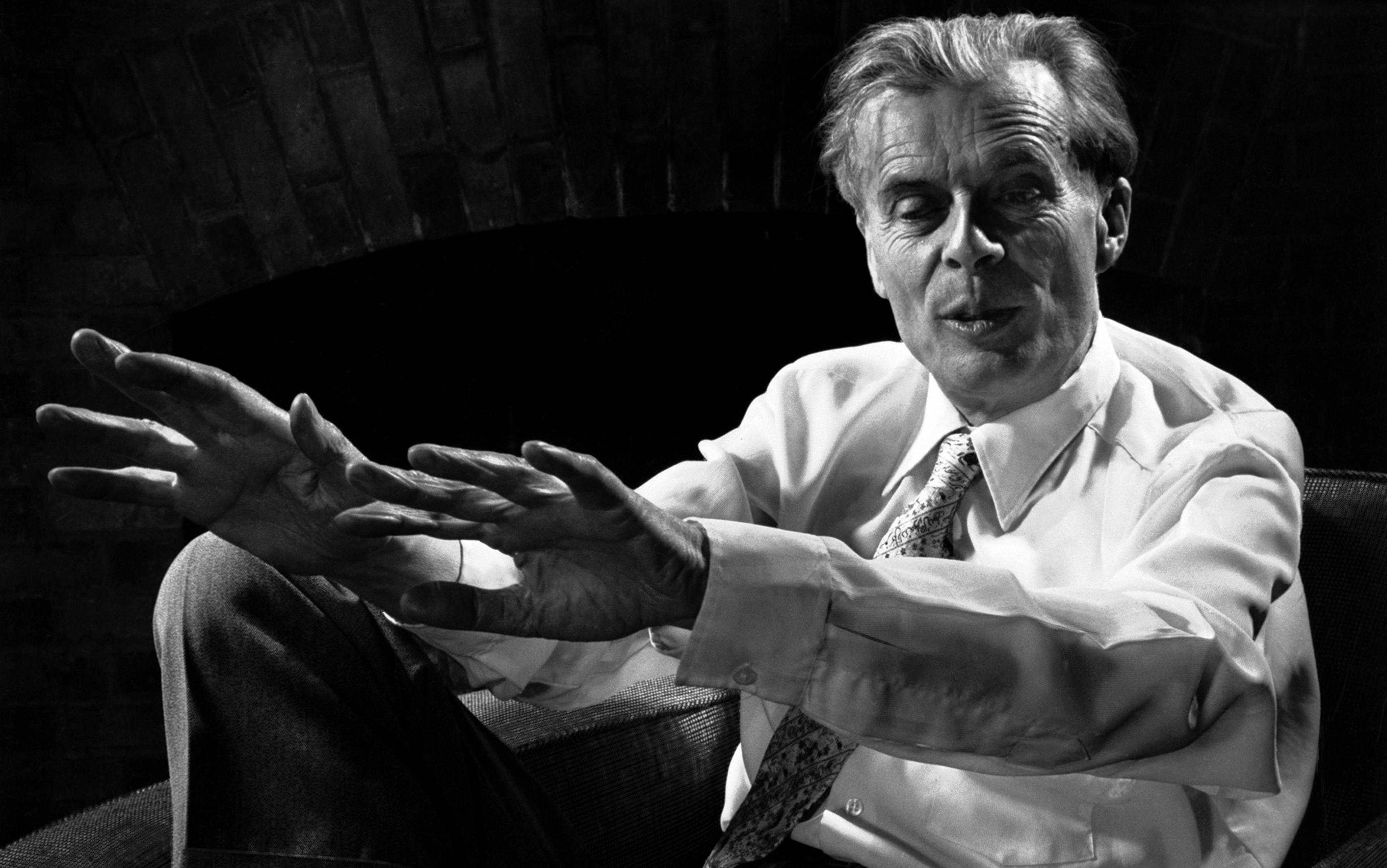In February this year, there was a clash of Titans. In one corner, Richard Dawkins, former Oxford professor, Darwinian biologist, brilliant science writer, scourge of the sloppy, and above all the Platonic Form of Atheist. In the other, Dr Rowan Williams, the Archbishop of Canterbury, himself no intellectual slouch, acknowledged as one of the West’s foremost scholars of Russian literature. The issue at stake: are you for a world devoid of ultimate meaning or are you for a world infused with purpose? Are you, as Benjamin Disraeli, the 19th-century prime minister, asked, on the side of Darwin or of the angels?
Although Dawkins is fully committed to the exclusive disjunction — science or religion but not both — Williams would have been surprised and appalled to be forced to choose between the two.
And here’s the rub: I, like Dawkins, am a non-believer. Yet I, like Williams, refuse to put science and religion at war. This is partly because I do not think they have to be — I see them as asking different questions. But it is also because I think there is something socially and psychologically unhealthy about the course that the debate has taken, especially by those on my side of the fence. I do not think the faults are all on one side, but let me speak to the side to which I might naturally be expected to belong.
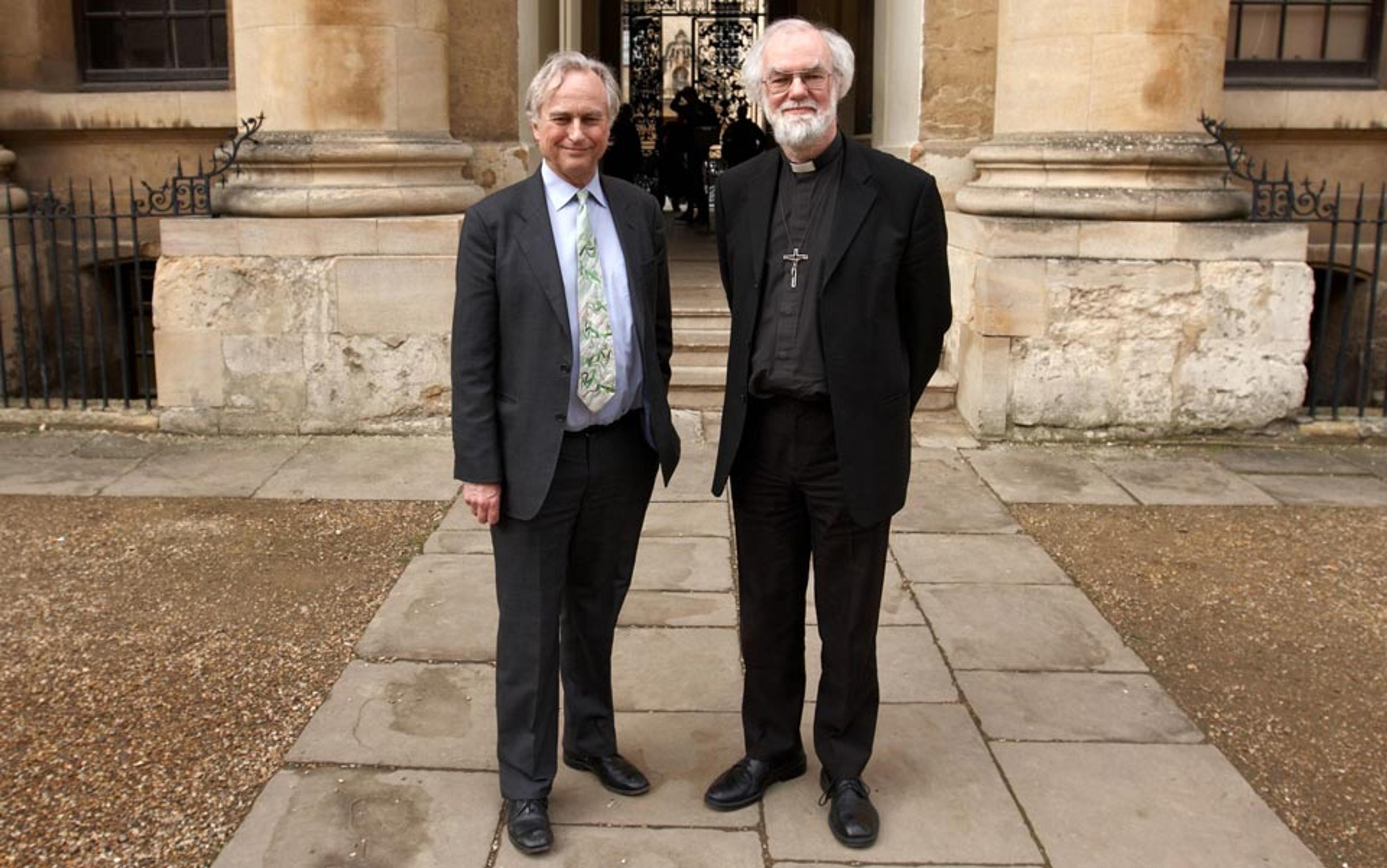
With the Dawkins-Williams confrontation, history was repeating itself. In 1860, a year after the publication of On the Origin of Species, the British Association for the Advancement of Science met at the Oxford University Museum. Darwin himself had long ceased to go to this kind of gathering, which was designed to explain and celebrate the achievements of science both to scientists and to the general public. He was always sick and had, moreover, grown to dislike the physical aspects of controversy — getting up and confronting opponents in person. No such qualms were felt by his most devoted and closest followers, the botanist Joseph Hooker and the anatomist and paleontologist Thomas Henry Huxley. They knew that Darwin’s theory of evolution through natural selection was going to be the topic of the day and that the critics were spoiling for a fight. In a way, it was a holy mission — the two knights out there to promote and protect the reputation of their sick leader. If only Wagner had been an Englishman: instead of Parsifal, we might have had Darwin.
No one was disappointed. The climax was the clash between the Bishop of Oxford, Samuel Wilberforce (who had been primed by the eminent anatomist Richard Owen), and Huxley, who was professor of natural history at the Royal School of Mines in London. Wilberforce, who was known for his oratory (not always favourably — his nickname was ‘Soapy Sam’), supposedly turned to Huxley and asked him if he was descended from monkeys on his grandfather’s side or his grandmother’s side. Huxley supposedly responded that he would rather be descended from an ape than from a man of learning who misused his talents to make a scoring point in a debate. Word got out later that Huxley said he would rather be descended from an ape than from a bishop of the Church of England. In short, everybody had a grand time, keyed up by the fact that Admiral Robert Fitzroy, the man who captained HMS Beagle when Darwin took his trip around the world in the 1830s, had become a fervent Evangelical. He rushed around the museum brandishing a bible and crying: ‘The book, only the book.’
The Wilberforce-Huxley clash has been a defining origin story for evolutionists for well over a century now. Indeed, I first heard of Charles Darwin from my history master, in England in 1955. A terrific teacher, he strode around the front of the classroom acting out the debate. Unfortunately, as with so many important myths, historians have thrown doubt on the authenticity of the fateful encounter. Perhaps clever things were said, but at the time they did not make the impression that later tellings imply. When the debate was over, the gladiators shook hands and went off together for a well-earned supper. They were, after all, Englishmen and gentlemen, and that is what really counted.
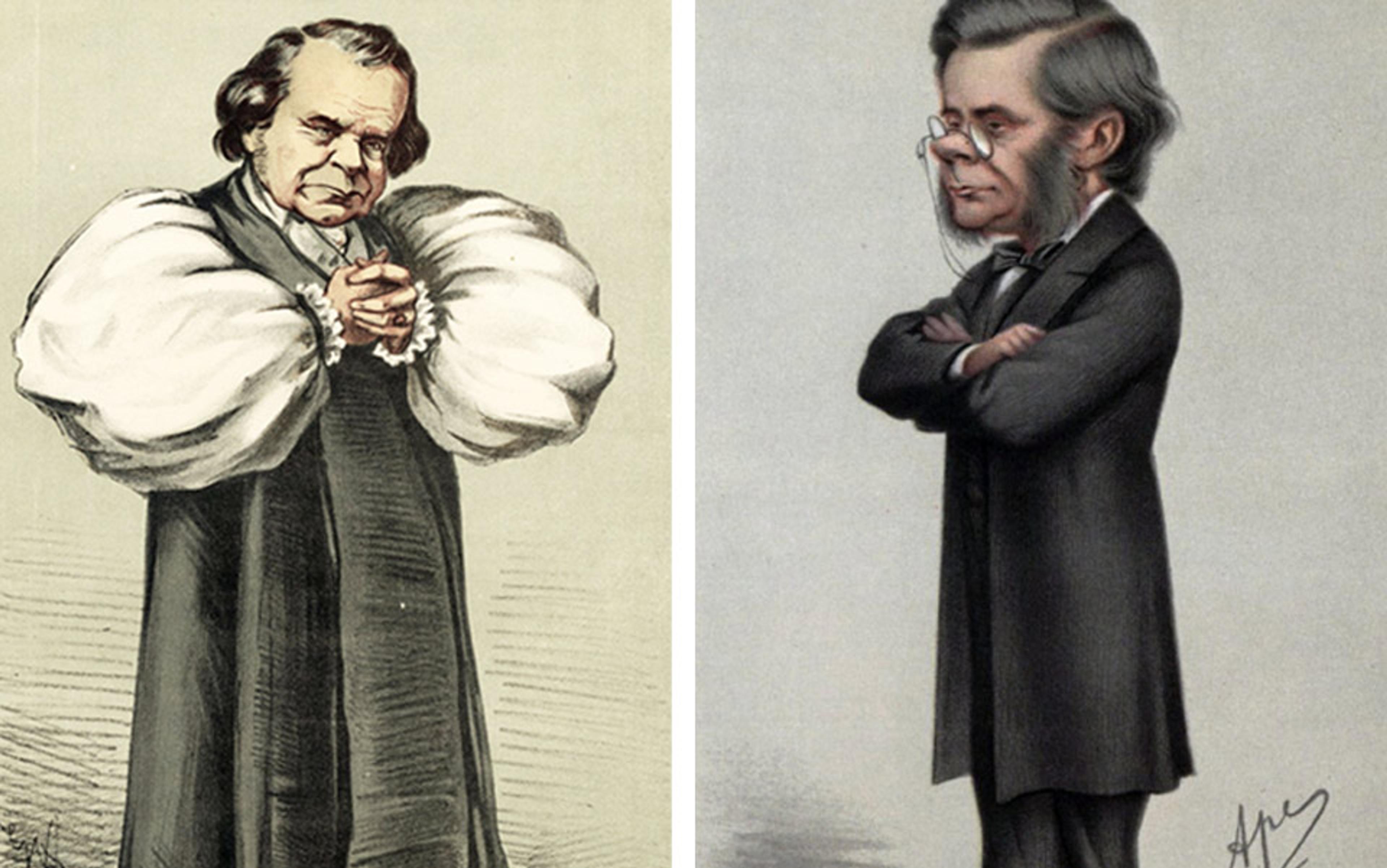
Nonetheless, there were real differences between the two protagonists, as can be seen in contemporary cartoons of the two men in Vanity Fair. Wilberforce is shown in full bishop’s regalia, including the baggy ‘lawn’ sleeves, taking one right back to the English Reformation. Huxley is in a Victorian business suit. He is the man of the New Age, when Britannia ruled the waves and, increasingly, the dry land also. He is the man of modern, science-based university curricula, of proper sanitation and well-built sewers and drains, of medicine intended to cure not kill, of universal literacy and votes for all (men that is).
It isn’t only evolutionists who have enjoyed retelling the Wilberforce-Huxley story. It is a favourite of secular Humanists, who like to define themselves as the champions of reason against the unreason of religion.
Today’s Humanists claim a lineage that stretches back into the classical world. They have no exclusive claim on the older humanist tradition of men such as Erasmus of Rotterdam, whose skill with ancient languages led, for instance, to better translations of the Bible. This broadly humanist world view may or may not have been religious but it did emphasise learning, human needs and human freedom. Indeed, all that is needed for a full and satisfying life, with an emphasis on reason and good sense. One would hope that every broad-minded person, believer or not, is a humanist in this regard.
What I am concerned with here is the self-proclaimed world-view of Humanism (which I capitalise to make this distinction). This is the movement that makes claims about science — and evolution in particular — that interest me. And it is this kind of Humanism that makes me uneasy. It doesn’t just define itself against religion; in some respects, it has taken on aspects of religion. Perhaps it is a kind of religion.
I think my religious friends are mistaken but I don’t think they are stupid or crazy or ill or evil simply because they are religious
Is it fair to speak of Thomas Henry Huxley as a Humanist in this sense? It is, at any rate, anachronistic. Indeed, Huxley is famous for coining the term ‘agnostic’ to describe his views. Yet in important ways he does foreshadow many characteristics of today’s Humanists. He was deeply committed to science, not just as a form of inquiry but as the foundation of his world-view. His life’s work in science, education and elsewhere (he was for many years a civil servant responsible for fisheries) shows that he was always thinking about the good that can come from science. He, like every other evolutionist of his day, thought that humans were not just any species. Evolution was progressive, from monad to man as it were, and we were the apotheosis of the evolutionary process. As such, we had a special role and status. (To be fair, late in life Huxley began to have doubts about this.)
Huxley was eager to distinguish himself from the certainties of the religious believer:
When I … began to ask myself whether I was an atheist, a theist, or a pantheist; a materialist or an idealist; Christian or a freethinker … at last, I came to the conclusion that I had neither art nor part with any of these denominations, except the last. The one thing in which most of these good people were agreed was the one thing in which I differed from them. They were quite sure they had attained a certain ‘gnosis,’ – had, more or less successfully, solved the problem of existence; while I was quite sure I had not, and had a pretty strong conviction that the problem was insoluble. So I took thought, and invented what I conceived to be the appropriate title of ‘agnostic’.
Thus far, this is all very well. I too might describe myself as an agnostic, although I prefer ‘sceptic’. The word ‘agnostic’ suggests someone who is not especially bothered about the relationship between science and religion and who wants to get on with other things. I, on the other hand, am very interested, and sceptics today generally seem more like me. They believe these questions matter.
In fact, I have great admiration for Thomas Henry Huxley. Frankly, when I first started on the history of science more than 40 years ago, I found him a bit too Victorian: smug and sanctimonious, always going on about integrity and that sort of thing. Over the years, I have come to appreciate the scale of his achievements and also the way that, unlike some, including Darwin, he was willing to go out and fight for what he thought right. When Governor Eyre of Jamaica hanged a half-caste troublemaker, although Huxley agreed that the man was probably a great nuisance, he argued that ‘English law does not permit good persons, as such, to strangle bad persons, as such.’ Leading the charge against Eyre, Huxley risked breaking long and deep old friendships. Despite suffering the most crushing of depressions, Huxley was never swayed from what he thought was morally proper.
Yet even Huxley was looking for something to replace religion as a world-view. In certain important ways, he anticipated the quasi-religious behaviour and attitudes of the Humanist movement today. He didn’t think science was indifferent to religion: he thought it could compete with it:
Extinguished theologians lie about the cradle of every science as the strangled snakes beside that of Hercules; and history records that whenever science and orthodoxy have been fairly opposed, the latter has been forced to retire from the lists, bleeding and crushed if not annihilated; scotched, if not slain.
He published a collection of his essays under the title Lay Sermons. The popular press knew him as ‘Pope Huxley’. And he wouldn’t brook any opposition. The Catholic biologist St George Mivart, a former student of Huxley who wrote against Darwin, found this out in quick order. From being one of the chosen inner group, he was expelled into outer darkness. Before long, charges were floating that Mivart was scientifically and religiously undependable, and that he also exuded a whiff of moral unreliability. Differences about science weren’t just epistemological: they were ethical too. That is what I don’t like: Huxley made science into something that behaved like a religion.
Why do I get upset by this? Firstly, because I didn’t give up one faith to take up another. There are many aspects of religion that I find really offensive, celibate old men in skirts telling young women how to run their private lives being one. Not all scientists are keen on authority; plenty would say that the best thing about science is that it is anti-authoritarian. Nonetheless, when scientists start talking about values, they often find it hard to resist the temptations of moralising and authoritarianism.
Secondly, I am uneasy that Humanism puts human beings at the centre of things in a way that is reminiscent of religion, especially monotheistic traditions. Huxley’s world vision makes humans as central as Christianity does. This kind of self-importance has contributed to world pollution and appalling behaviour towards plants and animals.
He saw evolution as a visionary, almost spiritual, ideal, a progressive force leading to the pinnacle of human morality
Thirdly, although science and religion can clash (you can’t believe in modern paleoanthropology and a literal Adam and Eve), I don’t think they are always in opposition. There are some meaningful questions that science simply does not address. ‘Why is there something rather than nothing?’ ‘Does life have a purpose?’ If religion wants to have a crack at answering these, then science cannot object. You might criticise the religious answers on theological or philosophical grounds, as I would, but not on scientific grounds. I don’t see Huxley or his intellectual descendants allowing this.
Fourthly, and perhaps most importantly, rival religions tend to say awful things about each other, putting down the doctrines and the practitioners. Think of evangelicals on the subject of Mitt Romney’s Mormonism, or of Northern Irish Protestants on the subject of the Pope. I think my religious friends are mistaken, but I don’t think they are stupid or crazy or ill or evil simply because they are religious. Huxley often preached tolerance, but in practice he could not wait to go after religion and religious people in the most scornful of terms.
In the end, I think it all boils down to what the religious call ‘enthusiasm’: being possessed of a divine inspiration or afflatus: literally en-theos. For all Huxley’s adherence to free thought and his rejection of divine authority, there was still the feeling that somehow one has the truth and that those who do not are lesser beings, perhaps even somewhat shifty or immoral. This glow of conviction is directly antithetical to humanism in the more generous sense, but it dogs ‘Humanism’.
But I have been talking about the 19th century. We are now in the 21st. Humanism has proven a hardy plant, but how did we get from there to here? In the middle of the 20th century, the world’s most ardent and prominent Humanist was none other than Thomas Henry Huxley’s oldest grandson, Julian, who among many other public roles was the first president of the British Humanist Association.
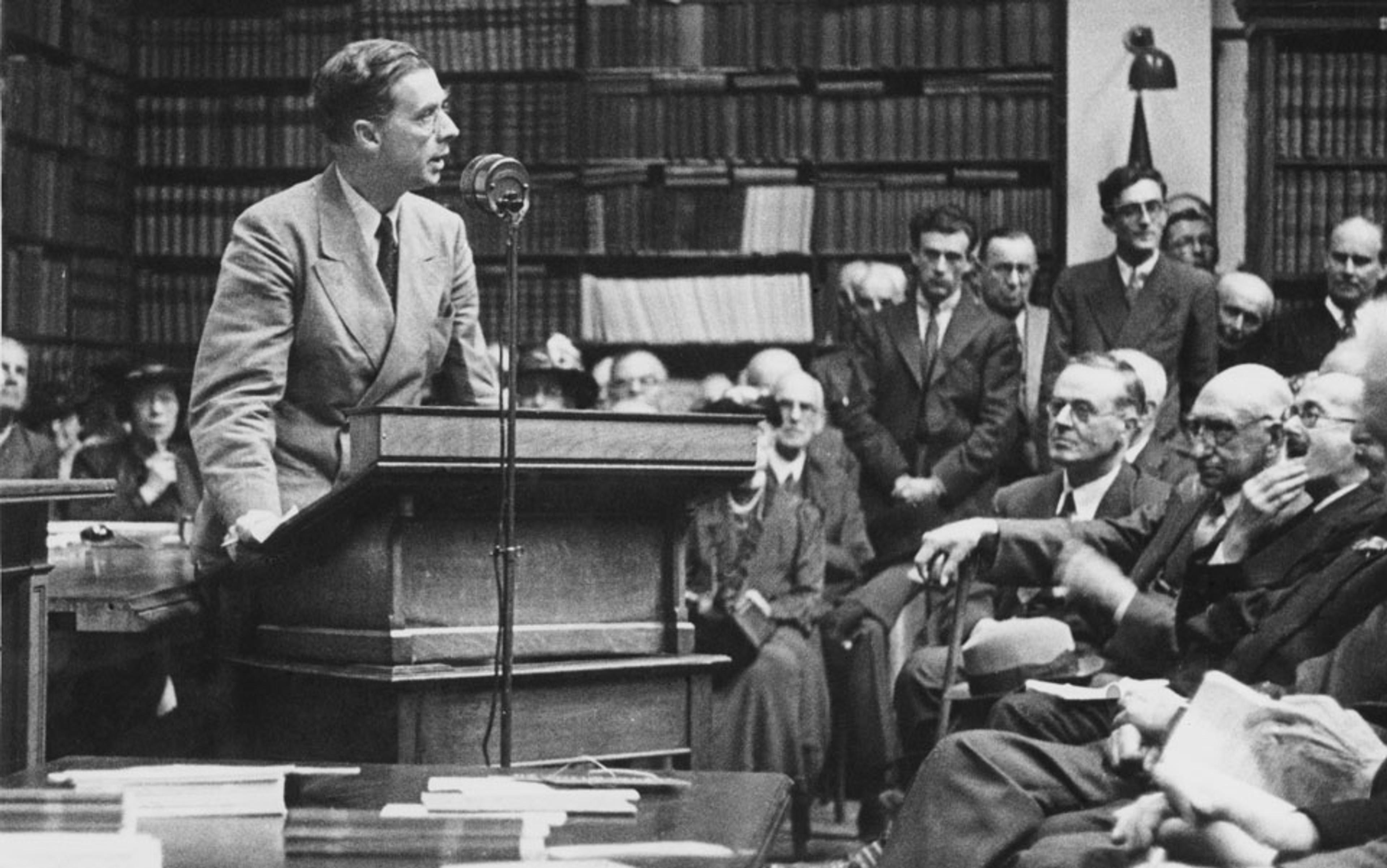
Far more explicitly than his grandfather, Julian Huxley saw Humanism (a word he did use) as an exact substitute for religion: a world-view based on evolutionary biology. ‘This new ideas-system, whose birth we of the mid-twentieth century are witnessing, I shall simply call Humanism, because it can only be based on our understanding of man and his environment. It must be organised around the facts and ideas of evolution, taking account of the discovery that man is part of a comprehensive evolutionary process, and cannot avoid playing a decisive role in it.’ In the spirit of his grandfather, he added: ‘it will have nothing to do with absolutes, including absolute truth, absolute morality, absolute perfection and absolute authority …’
Unusually, Huxley did not abandon eugenical thinking in the wake of the Second World War
There was a link in Julian Huxley’s mind to a kind of secular religion, ‘a conviction that religion of the highest and fullest character can coexist with a complete absence of belief in any straightforward sense of the word, and of the belief in that kernel of revealed religion, a personal god.’ For Huxley, science was the basis of a ‘religion without revelation’:
What the sciences discover about the natural world and about the origins, nature and destiny of man is the truth for religion. There is no other kind of valid knowledge. This natural knowledge, organised and applied to human fulfilment, is the basis of the new and permanent religion.
Julian Huxley was an idealist and a technocrat, believing that scientific and technical ingenuity would solve the social problems of his day — whether by massive hydroelectric schemes or population control. He was the first director of UNESCO and looked forward to ‘the emergence of a single world culture, with its own philosophy and background of ideas, and with its own broad purpose.’
This ‘single world culture’ was what he called ‘Evolutionary Humanism’: the ‘new and permanent religion’ of science and rational planning. Julian Huxley was a star public intellectual and a great populariser of evolutionary theory. You could say he was the Richard Dawkins of his time, and as with Dawkins, some of his fellow scientists were disturbed by his extension of Darwinism into an encompassing world view. Huxley saw evolution as a visionary, almost spiritual, ideal, a progressive force leading to the pinnacle of human morality. He ignored the warnings of David Hume about illicit shifts from matters of fact to matters of morality. Evolution pointed ever upward, according to Huxley, and so our moral obligation was to see that humans were promoted and their decay prevented. As the Christian implores you to love your neighbour as yourself, the Huxleyan Humanist asks you to facilitate the evolutionary process.
Julian Huxley’s vision of an ascending human evolutionary path could be notably indifferent to individual human beings. Like many intellectuals of his generation, he had been an enthusiast for eugenics in his youth. Unusually, though, he did not abandon eugenical thinking in the wake of the Second World War. Indeed, his proposed world government would have had a mix of eugenics and population control at the core of its responsibilities: no other institution would have sufficient rational, scientific and moral authority to do so, as he wrote in UNESCO: Its Purpose and Philosophy: ‘Political unification in some sort of world government will be required … Even though … any radical eugenic policy will be for many years politically and psychologically impossible, it will be important for UNESCO to see that the eugenic problem is examined with the greatest care, and that the public mind is informed of the issues at stake so that much that now is unthinkable may at least become thinkable.’
The trouble is, there is no simple line from evolutionary biology to the ethical life, and there is no guarantee that an alternative secular religion will lead us there. Huxley’s vision of a rationalised world united by Evolutionary Humanism makes me uneasy. Apparently UNESCO agreed: the organisation booted him out of his job after only two years, a long way short of achieving a world government based on rational, scientific lines.
In the second half of the 20th century, the outstanding Humanist in my sense has been my long-time friend Edward O Wilson, retired now from his post as professor of biology at Harvard but still going strong at 82 and always immersed in controversy. In his Pulitzer Prize-winning book On Human Nature, he declares explicitly that Darwinism is a new mythology replacing the old religious forms. The story is now a familiar one:
… make no mistake about the power of scientific materialism. It presents the human mind with an alternative mythology that until now has always, point for point in zones of conflict, defeated traditional religion. Its narrative form is the epic: the evolution of the universe from the big bang of 15 billion years ago through the origin of the elements and celestial bodies to the beginnings of life on earth… Every part of existence is considered to be obedient to physical laws requiring no external control. The scientist’s devotion to parsimony in explanation excludes the divine spirit and other extraneous agents.
Like Julian Huxley and the older evolutionists, Wilson is an ardent progressionist and believes that values emerge from the evolutionary process.
Exactly which values emerge from evolutionary science is another matter. One thing that always strikes me when looking at the history of religion is how the moral imperatives of religious world views mold and change through the ages as culture shifts. A hundred years ago, almost all Christians believed that homosexual relations were a terrible sin, worse even than theft and murder. Now, thanks to a deeper understanding of sexual orientation, many Christians (not all) find that homosexuality barely merits moral attention.
The same sorts of shifts can be seen in Humanism, as it reflects the concerns and beliefs of the day. Julian Huxley was mightily impressed by large government works and big science, things that kick-started economies in the 1930s: he wrote a whole book about the Tennessee Valley Authority. Edward O Wilson is concerned with ecology and biodiversity. He argues that in a world of plastic we would perish and that we need nature to survive, physically and psychically. Thus follow the moral imperatives that he derives from an evolutionary and scientific world-view.
By temperament, Wilson is a deeply religious man. This goes back to his Baptist childhood in the American South. He describes his discovery of evolutionary biology as a conversion experience. His faith did not fall away: it changed horses. Despite a strategic alliance with religious leaders in the environmental cause, he can be scathing about religious beliefs. Nonetheless, he sees religion as fulfilling deep human needs. In that sense it needs to be replaced by something like it. If monotheistic religion is a tribal cultural construct, he argues, then ‘religious faith is better interpreted as an unseen trap unavoidable during the biological history of our species. And if this is correct, surely there are ways to find spiritual fulfilment without surrender and enslavement. Humankind deserves better.’
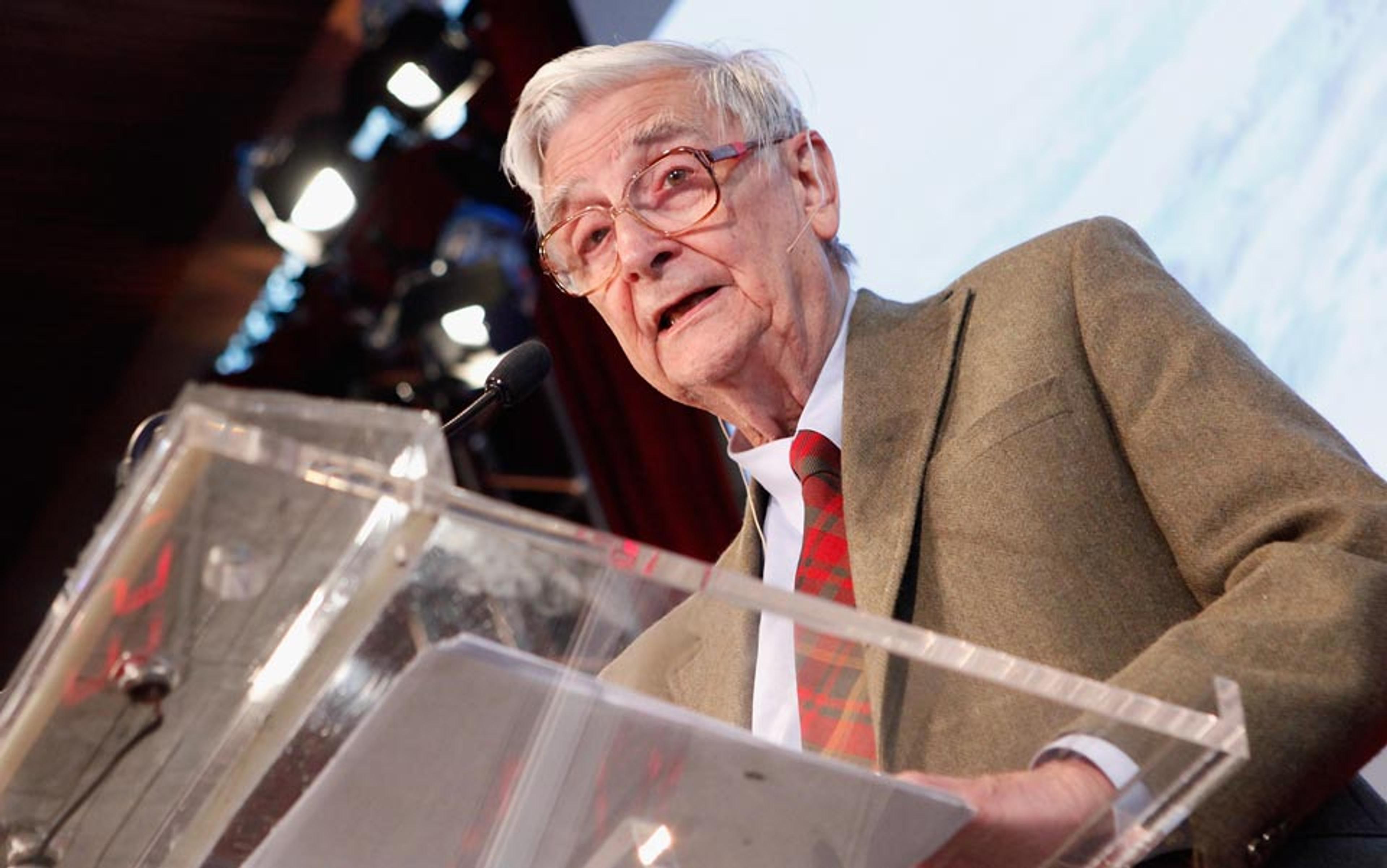
I love and respect Ed Wilson, but I cannot follow him this far. ‘Spiritual fulfilment’! It is not just a matter of disagreement. It is, once again, the enthusiasm that halts me. You may say that I am a lesser being. There is some part of me that is dead or missing. I am sure this would be the response of many Christians, particularly those who live in the American South, as I do. This is as it is. I think there are good reasons to be unsettled by enthusiasm, however. We saw in the case of Thomas Henry Huxley how quickly differences about facts and theories slide from the epistemological to the ethical. If you don’t agree with me, then you are not just intellectually suspicious but morally questionable also. ‘It is absolutely safe to say,’ as another prominent Humanist has written (I’ll tell you later who), ‘that if you meet somebody who claims not to believe in evolution, that person is ignorant, stupid or insane (or wicked, but I’d rather not consider that).’
Wilson is an old man now, past his sell-by date. At least he is if you read the rude things now said about him, especially regarding his fondness for group selection over individual selection. This is all part of his world picture that sees nature as essentially harmonious, in opposition to the mainstream Darwinian picture of ‘nature red in tooth and claw.’ More than 150 scientists signed letters to Nature criticising an article Wilson had co-authored in that publication in 2010, and his most recent book has been described by Dawkins as ‘erroneous and downright perverse.’ What, then, about the new generation of Humanists? What about the New Atheists, who have had so much to say on science and religion of late?
The bible of the movement, Richard Dawkins’s The God Delusion, defines itself not so much in its aggressive statement of non-belief, although that is certainly there, but in putting science in opposition to religion and replacing it as the basis of a world view. This is not new. Dawkins has been arguing for a long time, as have many evolutionists, that reconciling a Darwinian natural world with Christian belief is impossible.
In the 1990s, Dawkins was fond of quoting Darwin on the difficulty of squaring the suffering and pain associated with natural selection with the idea of a good God. Take the predator-prey relationship: cheetahs seem wonderfully designed to kill antelopes — ‘what we should expect if God’s purpose in designing cheetahs was to maximise deaths among antelopes’ — yet ‘we find equally impressive evidence of design for precisely the opposite end: the survival of antelopes and starvation among cheetahs.’
I have teased Jerry Coyne (something he does not entirely appreciate) and sent him $50 (something he did appreciate)
What kind of God is this? ‘Is He a sadist who enjoys spectator blood sports? Is He trying to avoid overpopulation in the mammals of Africa? Is He manoeuvring to maximise David Attenborough’s television ratings?’ The whole thing is ludicrous to Dawkins: there are no ultimate purposes to life, no deep religious meanings. ‘The universe we observe has precisely the properties we should expect if there is, at bottom, no design, no purpose, no evil and no good, nothing but blind, pitiless indifference.’
This view that science has an exclusive claim on truth has been taken to its logical conclusion by a recent book, The Atheist’s Guide to Reality: Enjoying Life without Illusions, by the philosopher Alex Rosenberg. Embracing the pejorative term ‘scientism’, which at the least has major overlaps with what I am calling ‘Humanism’, he argues that once science is finished, no questions remain. If the Big Bang or something like that cannot explain the meaning of existence, then there is no genuine question at stake. The same is true of morality, meaning, consciousness and everything else that religion and philosophy have claimed as their own.
If, as Julian Huxley once claimed, there is ‘no other valid kind of knowledge’ outside science, it is a short step to argue, as he did, that we should invent a new morality based on science. And sure enough, the neuroscientist Sam Harris has started to argue that morality needs no foundation outside science and can be derived from the natural state of affairs, in particular an evolutionary understanding of human beings. In his book The Moral Landscape: How Science Can Determine Human Values, Harris writes that:
Values reduce to facts about the well-being of conscious creatures … If our well-being depends upon the interaction between events in our brains and events in the world, and there are better and worse ways to secure it, then some cultures will tend to produce lives that are more worth living than others; some political persuasions will be more enlightened than others; and some world views will be mistaken in ways that cause needless human misery.
Like Julian Huxley before him, Sam Harris isn’t arguing that he is entitled to his private beliefs, but that science dictates what all right-thinking people must now believe.
The New Atheists believe that science replaces the claims about the world that religion makes — and therefore makes religion redundant. Some of them think that a whole new moral system should be based on science. That’s sounding more and more like religion itself to me. But the other unsettling way in which Humanism imitates religion — and perhaps the most notable one in the case of the New Atheists — is its claim that people who do not share its beliefs are not only mistaken but also deluded and perhaps even evil. The line I quoted above about opposition to evolution being a sign of insanity and possibly wickedness comes, of course, from Richard Dawkins.
Is this enough to say definitively that the New Atheists are making a religion from their position, that they are Humanists in the strongest sense? Dawkins has protested vehemently that his position is nothing like a religious one. Accepting the 1996 Humanist of the Year award, he stated:
It is fashionable to wax apocalyptic about the threat to humanity posed by the AIDS virus, mad cow disease, and many others, but I think a case can be made that
faith
is one of the world’s great evils, comparable to the smallpox virus but harder to eradicate … Well, science is not religion and it doesn’t just come down to faith. Although it has many of religion’s virtues, it has none of its vices. Science is based upon verifiable evidence.
Is Dawkins right about science? After David Hume, I think most of us would agree that science does involve an element of trust, of belief in something that can never have absolute proof. The very laws of nature cannot be shown to be mathematically or logically necessary. We could be like the turkey, fed every morning and, as the farmer approaches the coop, happily expecting breakfast on the December 24. Because it has risen every day before, the sun does not have to rise tomorrow.
But I think we can say that the pragmatic justification we give to the laws of science — they ain’t broke, so don’t fix them — is one that can be shared by all reasonable people in a way that seems barred to the many different and conflicting claims made in the name of faith. Are the Mormons right in thinking that Joseph Smith was given special revelations or are the Evangelicals right in thinking this deeply heretical? There is no way to settle questions of faith in the pragmatic style we take with scientific matters.
Let us agree that science itself is not a religion. But Humanism is a different matter, and in its most virulent form, it does try to make science into a religion. And despite the protestations of Dawkins and his fellows, the behaviour of the Humanists does not exhibit the kind of openness to evidence and adaptability that we’d expect from a rational, non-religious mindset. On the contrary, it is awash with the intolerance of enthusiasm.
For a start, there is the nigh-hysterical repudiation of religion. As with religions themselves, the implication is that those who fail to follow the New Atheist line are not just wrong, but morally challenged. Dawkins again:
I think there’s something very evil about faith … it justifies essentially anything. If you’re taught in your holy book or by your priest that blasphemers should die or apostates should die — anybody who once believed in the religion and no longer does needs to be killed — that clearly is evil. And people don’t have to justify it because it’s their faith.
In the caricaturing of ‘faith’ as murderous fundamentalism, one hears echoes of the bloody and interminable Reformation squabbles between Protestants and Catholics. One also sees contempt for fellow human beings, many of whom are educated, thinking members of society. One may question whether the present Archbishop of Canterbury was the man for the job, torn as his Church is over questions about women and homosexuality. One cannot doubt, however, his integrity or intelligence or Christian concern. To belittle a man such as this is to shine a light back on your own intolerance and failure to understand your species mates. It is also, of course, to help the real enemy, those who turn their backs fully on science as they follow their religion. Instead of making allies of those believers who hate intolerance as much as do you, everyone is at war and no proper defence is mounted against the really dangerous, the genuinely fanatical and fundamentalist.
There are other aspects of the New Atheist movement that remind me of religion. One is the adulation by supporters and enthusiasts for the leaders of the movement. It is not just a matter of agreement or respect, but of a kind of worship. This certainly surrounds Dawkins, who is admittedly charismatic.
Freud describes a phenomenon that he calls ‘the narcissism of small differences’, in which groups feud over distinctions that, to the outside, seem totally trivial. It is highly characteristic of religions: think of the squabbles about the meaning of the Eucharist, for instance, or the ways in which Presbyterians tear each other apart over the true meaning of predestination. For those not involved in the fights, the issues seem virtually nonsensical, and certainly wasting energies that should be spent on fighting common foes. But not for those within the combat zone.
The New Atheists show this phenomenon more than any group I have ever before encountered. This is a personal matter, so let me stress at once I am not writing this from a sense of exclusion or hurt or whatever. I am happy with my position and I love a good fight. Dawkins has said that on a scale from 0 to 7, from belief to non-belief, he scores about 6.9. I place myself even higher than that. I am a true non-believer. I am also a fanatical Darwinian — more so even than Dawkins because I think that, when it comes to culture, genes do much that he hands over to his own special cultural notion of ‘memes’. I have written many books about the implications of Darwinian thinking for epistemology and ethics.
What’s more, I think that religion has done and continues to do much harm to society. In the blog I write for the Chronicle of Higher Education I have taken on the Catholics, the Calvinists, the Mormons, and even the Quakers (perhaps a bit Oedipal, because I was raised a Quaker). Some years back, I was the expert witness in philosophy in Arkansas when the American Civil Liberties Union successfully fought against a law requiring the teaching of so-called ‘creation science’ (in other words biblical literalism) in the publicly supported schools of that state. I have been a vocal opponent of Creationism for many years. I have paid my dues.
And yet I, and others of my ilk, am reviled in terms far harsher than those kept for the real opponents like the Creationists. We are labelled ‘accommodationists’ for our willingness to give religion a space not occupied by science. We are put down in terms that denote powerful emotion, way beyond reason. In The God Delusion by Richard Dawkins, I am likened to Neville Chamberlain, the pusillanimous appeaser of Hitler. Jerry Coyne, the author of both the book and the blog Why Evolution is True and an ardent fan of Dawkins and Christopher Hitchens, wrote about one of my books in terms used by George Orwell: ‘There are some ideas so absurd that only an intellectual could believe them.’ The Minnesota biologist PZ Myers, who writes the blog Pharyngula, has referred to me as a ‘clueless gobshite’. And if I had a dollar for everyone who has made a pun out of my last name, I would be a very rich man. Because I will not toe the line absolutely or bow down in praise of Dawkins and company, because I laugh at their pretensions and positions, I am anathema maranatha.
As I said, I don’t care about the personal attacks. Indeed, I have the kind of personality that welcomes being in the public eye, even if the attention is critical. I have teased Jerry Coyne (something he does not entirely appreciate) and sent him $50 (something he did appreciate) as a retainer to make sure I am not forgotten. But I do think it all tells us something. Call it a secular religion if you will, or call it something else entirely. The Humanism I have been discussing in this piece does bear strong similarities to conventional religion. One finds the enthusiasm of the true believer, and this encourages a set of unnerving attributes: intolerance, hero-worship, moral certainty and the self-righteous condemnation of unbelievers. As an atheist Darwinian evolutionist, as one who is a humanist in the broader sense, this makes me feel really ill.
